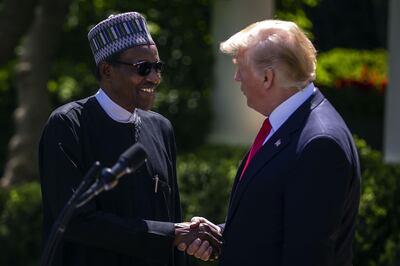For decades, the once fertile plains of central Nigeria sustained millions. In the country’s vast middle belt, more than 100 ethnic groups coexisted, mostly peacefully, farming, grazing their cattle and reaping the benefits of the west African nation’s agricultural bounty.
Now the arable land they share is shrinking at an alarming rate. And as the once lush plains grow increasingly arid, a bloody conflict is playing out between farmers, who are mostly Christian, and predominantly Muslim Fulani herdsmen. While the violence rarely attracts global headlines, the ongoing battle has claimed the lives of at least 10,000 people in the past decade. A total of 897 communities and more than 21,700 households have been affected since 2016, with homes, schools and hospitals damaged.
Violent deaths are now occurring on a near-weekly basis in a climate of utter impunity. Last week, six farmers were killed in fresh hostilities in Taraba state in northeastern Nigeria. In one of the worst incidents this year, at least 141 Fulani herders were reportedly massacred in a revenge attack in February.
While this has been presented as an ethno-religious conflict by unscrupulous politicians – both domestic and international, including US President Donald Trump – such an analysis oversimplifies a complex crisis. It is not simply motivated by religious hatred but presents a terrifying vision of what a world afflicted by climate change might look like.
In resource-rich central Nigeria, herders and farmers have long lived peacefully side-by-side, particularly during the lengthy dry season, when northern Fulani herders head south with their cattle to graze. But the past decade has seen climate change begin to leave its mark on the country, with arable land incrementally decreasing in size, and different ethnic groups fighting to stake a claim to diminishing territory. Together with rapid population growth, the two sides have taken up machetes – and more recently, guns – causing the death toll to soar.
In the past two years alone, about 4,000 people have been killed. Many more have been wounded, raped, displaced or had their houses razed.

By some estimates, desertification, the process by which fertile land becomes barren, now affects up to 60 per cent of Nigerian land. With less arable land available and water increasingly difficult to come by, cattle herders have moved farther and farther south, often destroying pastures as they go through overgrazing. Meanwhile, Nigeria’s population has ballooned from 150 million to 190m in a decade, causing further land scarcity and food shortages and provoking intensive farming practices that crowd out smallholder farmers.
This is not just a Nigerian problem but a regional one. Lake Chad, which spans Cameroon, Chad and Nigeria, has shrunk by a shocking 90 per cent since the 1960s. In this fractious part of west Africa, a scarcity of resources is a growing problem, fuelling deadly violence. Cameroon has witnessed its own confrontations between farmers and herders.
Despite its environmental roots, this conflict has been politicised in Nigeria, particularly at a local administrative level, by those seeking justice for their communities or to shore up Christian support.
The weaponisation of this issue is unsurprising, given that Nigerian President Muhammadu Buhari is himself a Fulani Muslim and has faced accusations that he has not done enough to stamp it out.
In April last year, he became the first sub-Saharan leader to visit the Trump White House, presenting the US president with an opportunity he could not resist. “We have had very serious problems with Christians who are being murdered in Nigeria,” Mr Trump said at the time. “We are going to be working on that problem very, very hard because we cannot allow that to happen.”
His words were most likely a cynical appeal to the millions of evangelical Christians who make up a vocal portion of his base. But they are illustrative of the ways in which right-wing leaders exploit crises to serve their interests. Despite his apparent concern, Mr Trump has been silent on herder-farmer violence since Mr Buhari’s visit.
Religious hatred does of course play some part in the conflict. Boko Haram, the violent Islamist insurgency that has waged a brutal campaign in Nigeria’s battle-scarred northeast, has also weighed in to sow further discord and divide communities.
There are other aggravating factors, including the flow of cheap weapons and firearms into Nigeria. By some estimates, 70 per cent of guns imported illegally into west Africa end up in Nigeria. As Mr Buhari told Mr Trump: “Before now, cattle herders were known to carry sticks and machetes but these ones are carrying AK-47s.”
But, overriding all other causes, climate change is key. According to the Nigerian Conservation Foundation, the country is losing at least 350,000 hectares of arable land per year, while major water sources are shrinking and the country’s population – already Africa’s largest – continues to rise.
Mr Buhari’s government has taken some action, including increasing a military presence in hotspots and consulting local leaders. Last year the government announced a 10-year National Livestock Transformation Plan to tackle food security and end the prolonged conflict via investment in livestock and humanitarian relief. Whether it goes far enough is questionable. What is required is an extensive examination of the ways in which climate change is affecting the people of Nigeria, taking into account land and grazing rights, rural poverty and ways to deal with desertification.
In the 1990s, academics began warning of climate wars. That reality is unfolding right now, in the heartlands of Nigeria, and serves as a lesson in what failing to protect against the ravages of climate change could look like.

